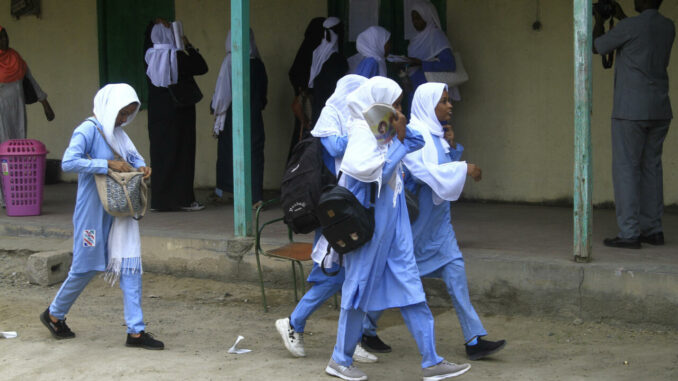
The UN children’s agency, UNICEF, has revealed a harrowing surge of sexual violence against children, including infants as young as one, in the ongoing civil war in Sudan.
Mass rape has been systematically employed as a weapon of war during the nearly two-year conflict, with the agency’s report providing the first detailed insights into the extent of this abuse affecting the youngest and most vulnerable.
Alarmingly, a third of reported victims are boys, who often face unique barriers in disclosing such crimes and accessing necessary support services.
Though 221 cases of child rape have been formally reported this year, UNICEF indicates that this figure may represent only a fraction of the actual incidents occurring.
The report paints a chilling picture of the violence perpetrated against children, with 16 victims documented as being under the age of five, and four classified as infants. While UNICEF does not specify the perpetrators, prior UN investigations have implicated the paramilitary Rapid Support Forces (RSF), accusing them of utilizing sexual violence to spread fear and subjugate civilians. The RSF has denied any wrongdoing, yet evidence suggests that assaults are often racially motivated, targeting black Africans within the Darfur region to forcibly displace them from Sudan. The lack of reporting is compounded by prevalent social stigma and fears of retaliation, further silencing survivors and their families.
Access to essential services has become increasingly precarious in Sudan, where women and children are particularly at risk amid widespread displacement. Many medical facilities have been either destroyed or repurposed by ongoing hostilities, and the recent cuts to US aid threaten to diminish even the limited resources available for responding to these crises.
Local organizations aimed at supporting victims of sexual violence, particularly those led by women, are drastically underfunded, receiving less than 2% of the UN’s humanitarian aid for Sudan. Advocates warn that the effects of war, such as the urgent need to find food or seek safety, leave little room for survivors to confront their trauma, further entrenching the cycle of violence and despair.
